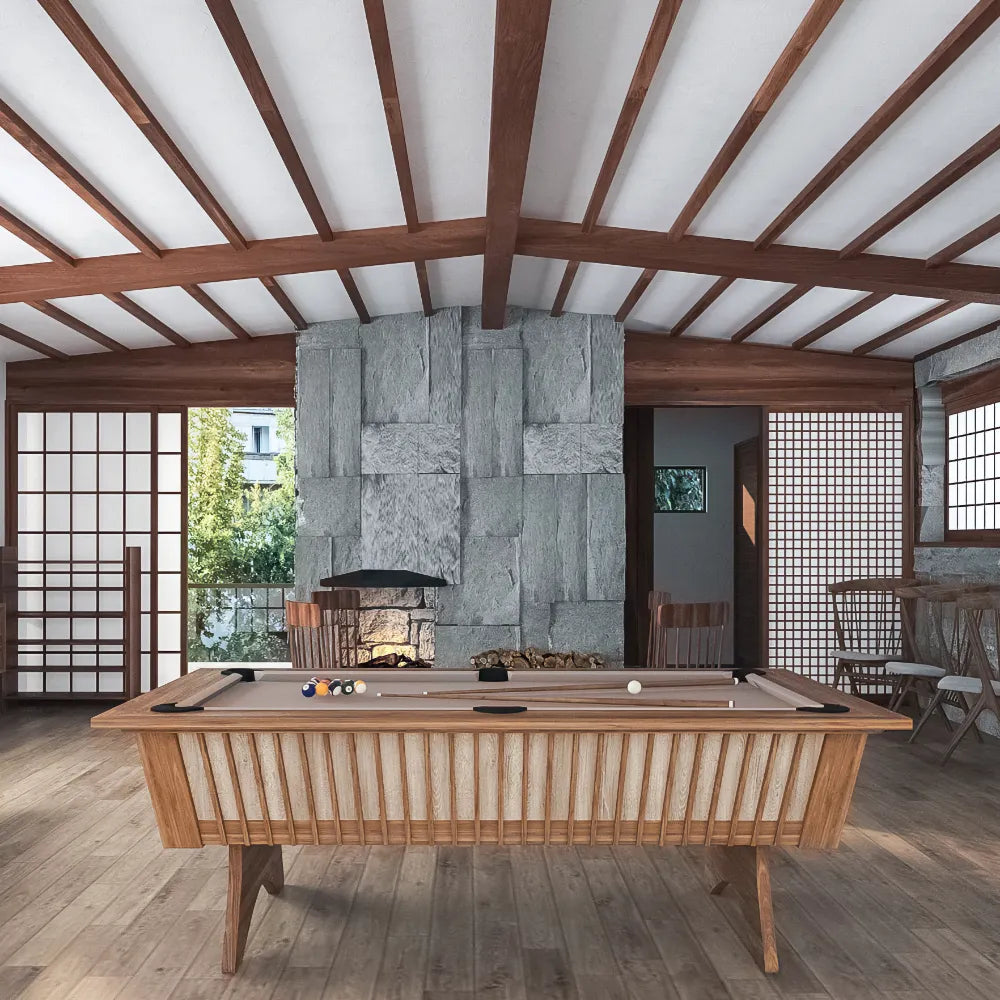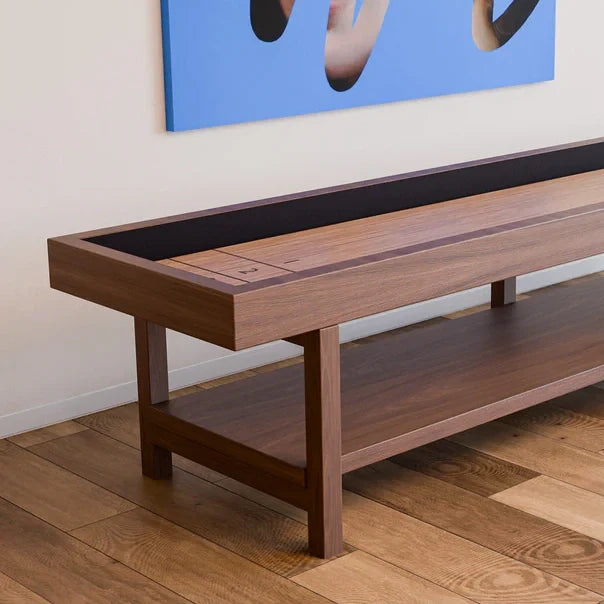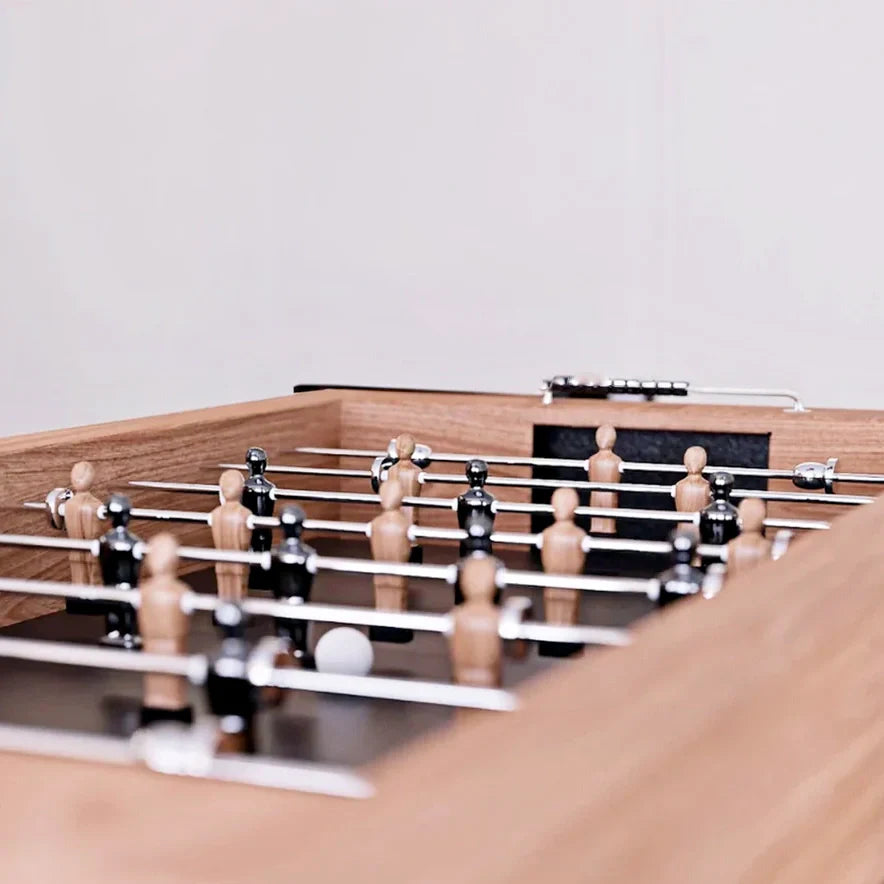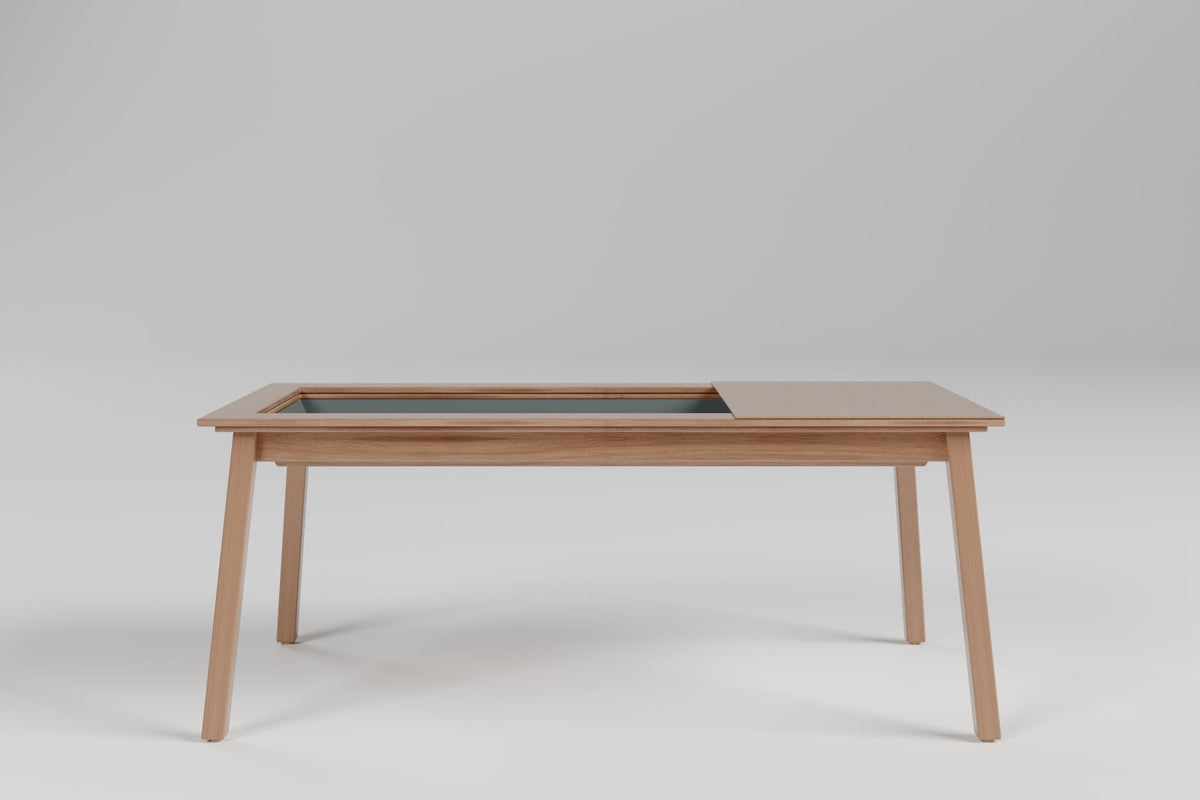Differences in Construction and Materials
-
Surface Material:
- Residential Tables: Often feature a playing surface made of MDF (Medium-Density Fiberboard) or lower-quality slate. While some residential tables use slate, it is usually thinner (often less than 1 inch), which affects the ball's roll and consistency.
- Tournament Tables: Constructed with high-quality, thick slate (at least 1 inch), providing a smoother and more consistent playing surface. This material offers superior durability and is less prone to warping.
-
Cushions and Rails:
- Residential Tables: May use standard cushions that provide acceptable rebound but lack the precision needed for serious play. Quality can vary, impacting ball bounce.
- Tournament Tables: Equipped with high-quality cushions (like K66 rubber) for accurate ball rebound and consistent performance across various shots. They meet professional standards for precision and durability.
Design and Aesthetics
- Residential Tables: Focus on aesthetics, offering various styles and finishes to match home decor. Some models may include convertible surfaces or dining tops for multi-purpose use.
- Tournament Tables: Prioritize functionality and durability over aesthetics. The design is utilitarian, with fewer customization options, as the focus is on performance.
Intended Use and Durability
- Residential Tables: Built for casual play, these tables are ideal for family use but may not withstand frequent or intense gameplay. They are lighter and easier to move, making them suitable for home environments.
- Tournament Tables: Designed for heavy use in competitive settings, these tables maintain their quality over many years and offer consistent performance, even under rigorous conditions.
Playing Experience
While a well-made residential table with a slate surface can provide a good playing experience, notable differences include:
- Consistency: Tournament tables provide a more consistent playing experience due to superior materials and construction. Pocket sizes are typically tighter, requiring greater precision.
- Leveling and Setup: Proper installation and leveling are crucial for both types. Tournament tables often feature mechanisms for precise leveling, enhancing playability.
Conclusion
Residential-style pool tables can offer enjoyable gameplay for casual players but do not match the performance of tournament-style tables. Serious players or those practicing for competition will benefit from professional-grade tables that meet rigorous standards in materials, construction, and durability. For casual home use, a well-maintained residential table with quality components, like a slate surface and good cushions, can still provide a satisfactory experience.





0 comments